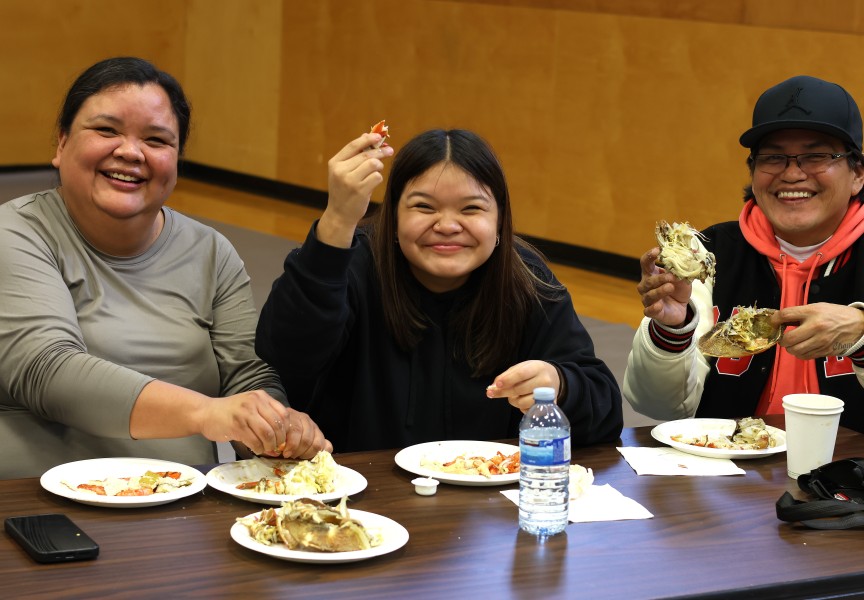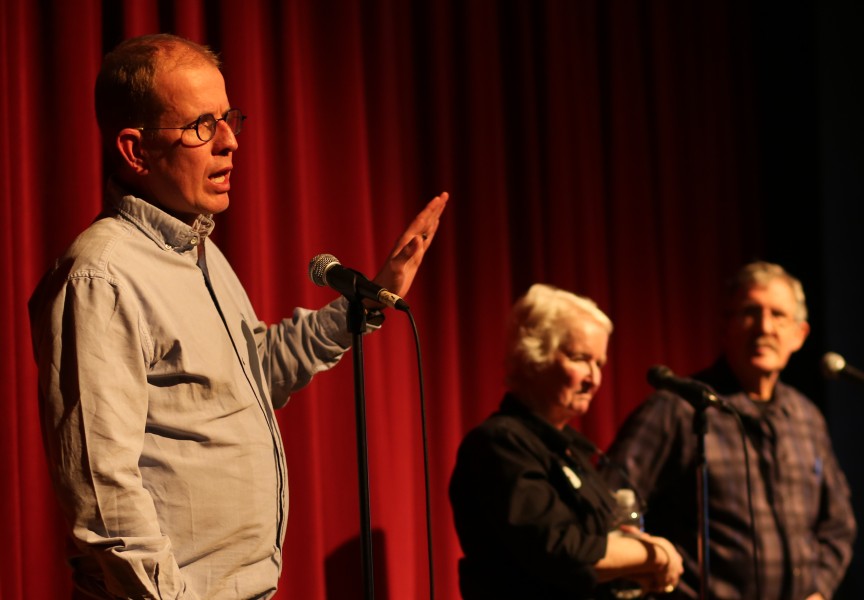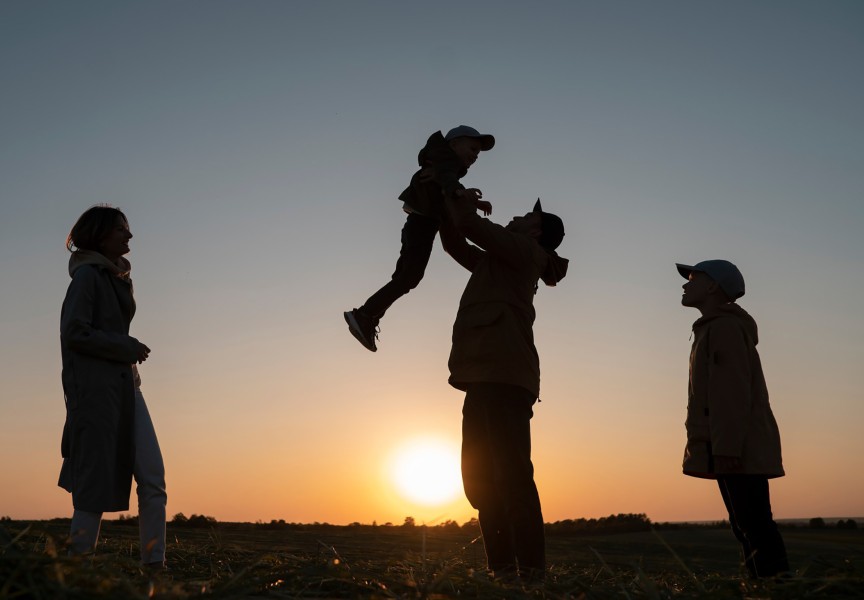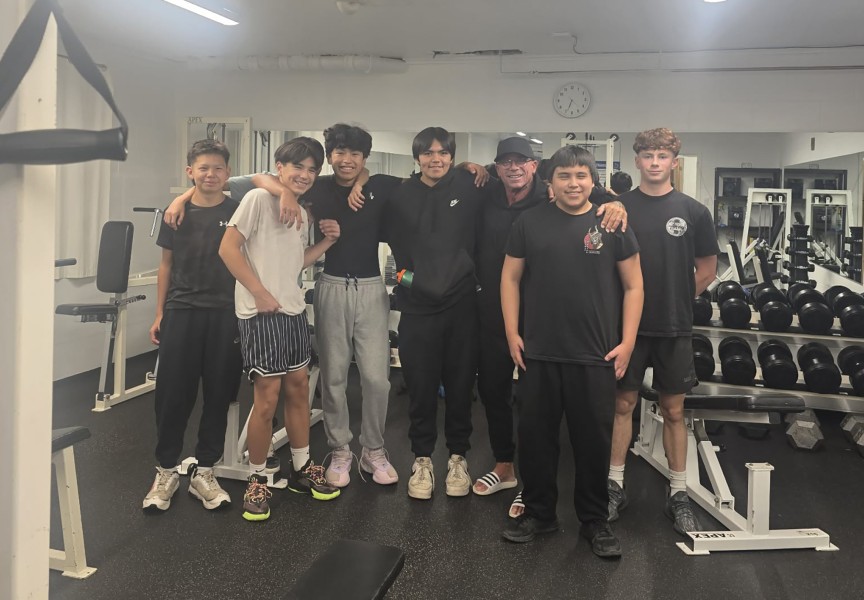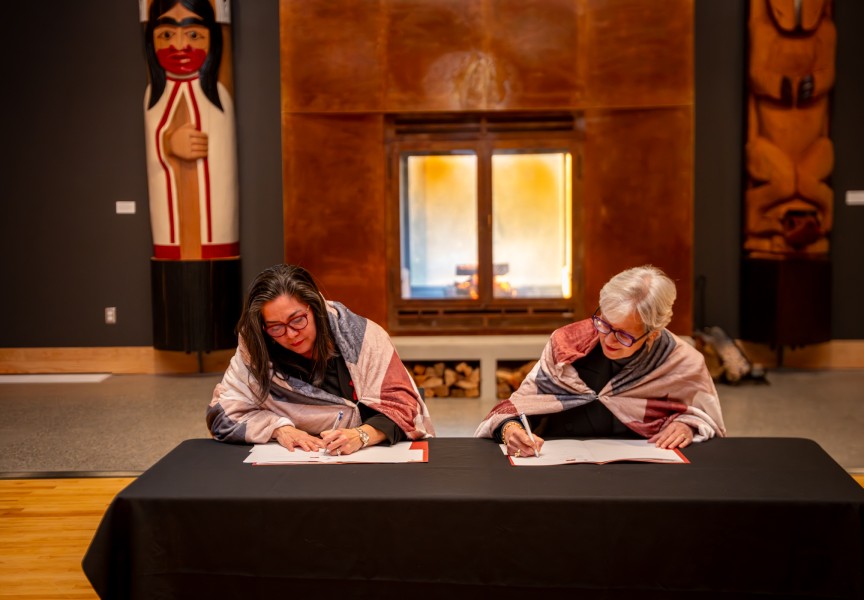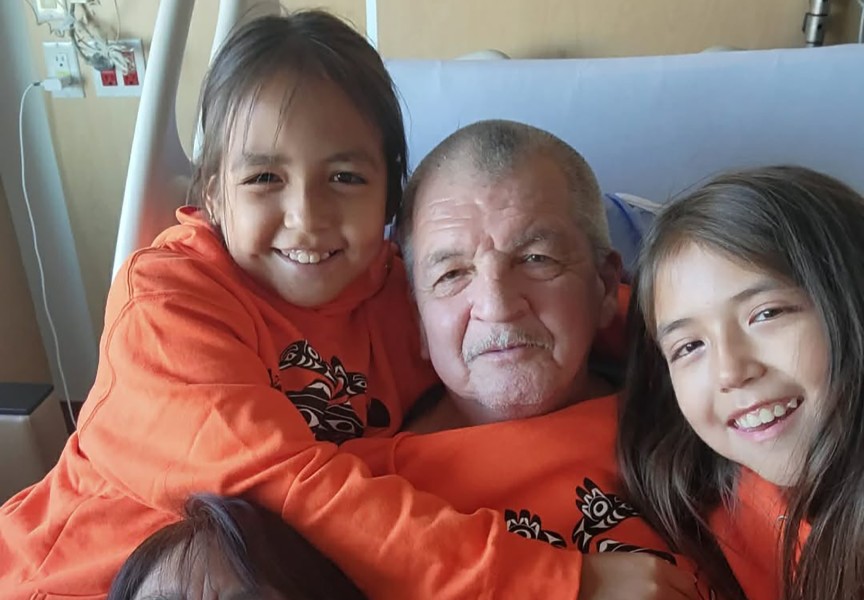An offering of dried Devil’s Club, the plant used by Indigenous peoples for a range of medicinal, ceremonial and spiritual purposes, sat beside a sign-up sheet for traditional cedar brushings as members of the ʔuukʷinkpanač (ook-wink-panach) West Coast Primary Care Initiative (WCPCI) team welcomed guests to the Tin Wis Conference Centre on May 10 for a grand opening celebration.
With ʔuukʷinkpanač WCPCI now officially launched, community members living inʕaaḥuusʔatḥ (Ahousaht), ƛaʔuukʷiʔatḥ (Tla-o-qui-aht), ḥiškʷiiʔatḥ (Hesquiaht), tukʷaaʔatḥ (Toquaht) and yuułuʔiłʔatḥ (Yuucluthaht) can call to book appointments for some services, including traditional wellness and nursing services.
“One thing that all of us of as First Nations people know and are aware of is the ongoing racism in the healthcare system within not only B.C., but Canada. And when we have the opportunity for healthcare providers to come into our community, our people automatically feel more safe in our community rather than having to go into an institution like a hospital,” said Mariah Charleson, Nuu-chah-nulth’s representative on the First Nations Health Council and elected chief councillor of Hesquiaht First Nation.
“It’s everything that we’ve been needing for so many years. With opening of primary care initiative, it means we’ll have access to a lot more resources to come into our community rather than having people having to travel to receive any type of healthcare resources,” said Charleson before sitting down to enjoy a smoked salmon lunch with Nuu-chah-nulth leaders from all five communities.
Charleson was raised in the rural and remote Hesquiaht village of Hot Springs Cove, located about one hour boat ride away from Tofino’s First Street dock. She said the boat fee to leave her village is $600 on a nice day, but if it’s stormy, the cost soars to $1,500 for a one-way boat trip.
“It’s massive. If it’s a stormy day, you cannot charter a small boat. You have to charter a seaworthy boat just to be safe,” said Charleson. “Hesquiaht, we are swimming in debt every year because we don’t fit in the blanket policy that is across British Columbia for medical transportation.”
But with the launch of ʔuukʷinkpanač WCPCI, Hesquiaht members – and all Nuu-chah-nulth members living in the Clayoquot Sound region – can now benefit from healthcare services coming directly to them.
“They are coming to us. This is exactly what we need,” Charleson re-iterates.
Hesquiaht First Nation Councillor Kayla Lucas also grew up in Hot Springs Cove and has witnessed firsthand the struggle other members endure to access healthcare services, from catching boats to the lengthy waitlists at the nearby clinic in Tofino.
“This is western medicine finally coming to our communities to fill that gap that has been there for so long,” said Lucas. “We will be able to conquer barriers with it coming into community. This is a huge step forward and I can’t wait to see it take off.”
ʔuukʷinkpanač WCPCI works through a partnership agreement with the Uut Uuštukyuu Society, a network of Indigenous healing practitioners guided by traditional healing law.
Ahousaht Hereditary Chief Hasheukumiss (Richard George) said he is honoured to walk on this journey with ʔuukʷinkpanač, Uut Uuštukyuu and everyone involved.
“It’s breaking down all of our barriers and all of our past to really heal as one,” said Hasheukumiss. “We really need a lot of healing in our community. Intergenerational trauma is still upon us, we haven’t even scratched the surface, and I see this as a real step forward.”
“It’s our way and the western way together,” adds Charleson. “That kind of medicine can’t be stopped.”
B.C. Minister of Health Josie Osborne attended the milestone day. She participated in a traditional healing practice, led by Ahousaht elder Dave Frank, that used a hemlock branch to shift energies within the body.
“First Nations people in B.C. often face barriers when it comes to accessing culturally safe primary care or trauma-informed health-care services that are close to home,” said Osborne.
“The opening of the ʔuukʷinkpanac West Coast Primary Care Initiative is a key part of furthering the First Nations Primary Care Initiative and will ensure that First Nations communities and families have access to the quality health care that they deserve,” she said.
Nuu-chah-nulth members living in Ahousaht will meet at the Chah Chum Hill Yup Tiic Miss building for appointments. Hesquiaht members will meet practitioners at the Hesquiaht Health Centre, which has been renovated to facilitate more private and confidential spaces.
Tla-o-qui-aht members will visit the Opitsaht Health Centre or Tiic-mis-aq’kin Health Centre in Ty-Histanis for appointments. Toquaht Nation citizens will use the Toquaht Gathering Place and Ucluelet First Nation citizens use Huupatu Health Centre in Hitacu.
ʔuukʷinkpanač means ‘walking in togetherness’. The new WCPCI health services model was funded by the B.C. Ministry of Health and the First Nations Health Authority (FNHA). ʔuukʷinkpanač is a non-profit organization made up of health care providers including physicians, registered nurses, mental health supports, harm prevention support, social work, elder support and traditional wellness supports.
Recruitment for ʔuukʷinkpanač WCPCI is ongoing, according to director of operations Suzanne Williams, and job opportunities include a clinical manager, primary care community pharmacist, family physician, Primary Care Registered Nurse and a mental health clinician.
Anyone interested in booking a healthcare appointment with the ʔuukʷinkpanač WCPCI, is encouraged to call 250-266-7974 or visit the website https://westcoastpci.ca/ for more information.


